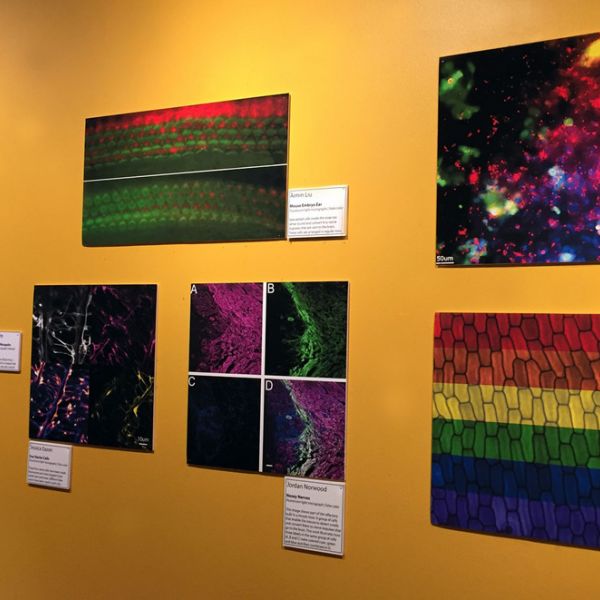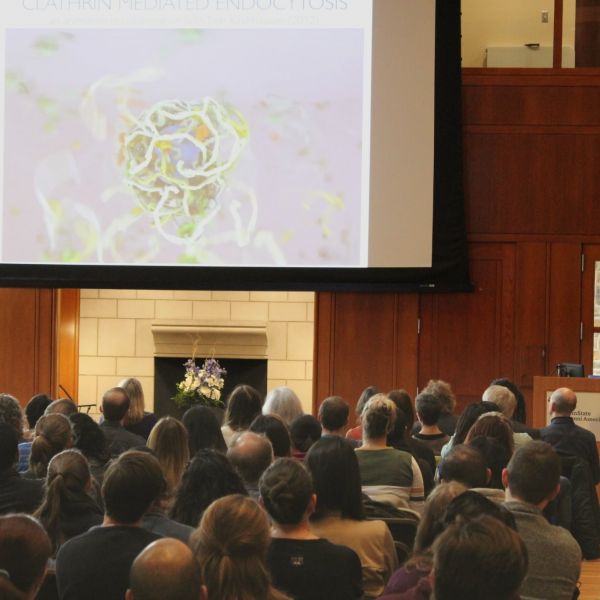News

Sep 26, 2019
Melissa Rolls appointed Paul Berg Professor of Biochemistry
Melissa Rolls, professor of biochemistry and molecular biology, has been named the Paul Berg Professor of Biochemistry. The professorship was created in 1995 by an anonymous donor in honor of Paul Berg, a 1948 Penn State graduate who was named a Distinguished Alumnus in 1974 and earned the Nobel Prize in 1980 for developing a method to map the structure and function of DNA.
Full Article

Jan 18, 2019
Discovering the beauty of living cells: Science meets coffeeshop art
A December exhibition at Webster's Bookstore Cafe titled “The Art of Cell Biology,” featured 18 pieces of science-based artwork produced by Penn State research,
Full Article

Oct 19, 2018
Innovative meeting brings scientists and artists together
The University of Utah’s Dr. Janet Iwasa headlined the “Art of Cellular Biology” event.
Full Article
Mar 07, 2017
Discovery rewriting the evolutionary history of the nervous system
Penn State researchers at the Huck Institutes of the Life Sciences uncover a long-standing, fundamental error in the story of the nervous system’s evolution.
Full Article
Jul 11, 2016
Summer fieldwork for MCIBS students: from here to China
This summer many MCIBS students can be found hard at work in their labs. Or you just might find some by a local stream or in Africa or China taking their research into the field.
Full Article
Mar 30, 2015
Crowd-funding campaign to accelerate clinical trials of brain-repair discovery
Pushing promising new brain-repair research from the Gong Chen lab into clinical trials is the goal of a quick crowd-funding campaign that kicked off March 30.
Full Article
Feb 17, 2015
Nerve-cell signaling traced back to common ancestor of humans and sea anemone
New research led by by Tim Jegla shows that a burst of evolutionary innovation in the genes responsible for electrical communication among nerve cells in our brains occurred over 600 million years ago in a common ancestor of humans and the sea anemone.
Full Article
Aug 21, 2014
Ben Franklin's TechCelerator turns promising research into startups with promise
Research-to-startup program helps build entrepreneurship among scientists including Huck Institutes faculty researchers Tony Jun Huang and Gong Chen.
Full Article
Jul 23, 2014
Research team sets sights on fighting hunger by strengthening plants
A group of Penn State students led by Assistant Professor of Biology Charles Anderson is exploring ways to make plants hardier, boosting world food supplies in the process.
Full Article
Jul 20, 2014
Crowdfunding campaign underway to support student research on sustainable agriculture
A group of students led by Charles Anderson has launched a crowdfunding campaign to support their new research project in sustainable agriculture, Fast Farming: Feeding a Hot, Dry World.
Full Article